- The Essequibo region claimed by Maduro covers a significant area, totaling around 159,500 km², representing two thirds of Guyana’s total territory;
- Guyana granted exploration licenses to oil companies, resulting in territorial claims by Venezuela;
- Venezuela’s demand resembles foreign policies of other populist leaders used only to create national unity and distract the population from national problems.
The territorial dispute between Venezuela and Guyana over the Essequibo region, marked by a long history of more than a century, takes on a new complexity in the current context with a Venezuelan referendum.
Therefore, it is important to explore the history of this dispute and the oil discoveries that shook the region. In parallel, we can analyze how the strategy of Venezuelan leader Nicolás Maduro can be compared to the approach of Argentine leader General Leopoldo Galtieri during the Falklands War in the 1980s.

Historical Background of the Territorial Dispute between Venezuela and Guyana
Venezuela and Guyana have engaged in a prolonged and delicate territorial dispute over the Essequibo region, located in South America. The origins of this conflict trace back to the 19th century when colonial borders were established.
In 1899, an arbitral tribunal, composed of representatives from the United States, the United Kingdom, Russia, Italy, and Sweden, issued a ruling that granted the majority of the disputed territory to British Guiana, now known as Guyana. However, Venezuela rejected the verdict, claiming foreign interference.
Over the decades, relations between the two countries have fluctuated between moments of tension and periods of dialogue. The recent discovery of extensive oil reserves in the region has reignited hostilities, with Venezuela now asserting rights over these resources, despite already having the world’s largest oil reserves.
In 2018, Guyana granted oil exploration licenses in contested waters, prompting Venezuela to claim the area as part of its territory. Venezuela’s escalation led to a diplomatic standoff. In response to this situation, the International Court of Justice (ICJ) intervened. International organizations, including the UN, encouraged ICJ mediation to seek a peaceful resolution. In 2021, the ICJ decided it had jurisdiction to examine the dispute, paving the way for hearings and a potential legal resolution of the conflict.
As ICJ deliberations continue, the Essequibo region remains a crucial point of contention between Venezuela and Guyana. The outcome of this conflict awaits a definitive decision from the ICJ, while both countries seek to preserve their interests in the disputed region.
Discoveries of Oil in the Essequibo Region in Guyana
In the last decade, Guyana has emerged as a new player in the global oil scene, thanks to significant discoveries of vast reserves in the Guyana Basin region off its northeastern coast. Leading companies such as ExxonMobil, Hess Corporation, and CNOOC (China National Offshore Oil Corporation) have played a key role in this new oil frontier.
The milestone occurred in 2015 when ExxonMobil announced the discovery of the Liza oil field in Guyana’s Exclusive Economic Zone. Since then, the region has witnessed continuous explorations, revealing substantial oil quantities in fields like Payara, Snoek, Liza Deep, and Turbot.
The magnitude of these discoveries points to reserves that could exceed 1 billion barrels of oil in just the Liza field. These promising findings have implications not only for Guyana’s economy but also for global geopolitical balance and energy market dynamics.
With this newfound wealth, Guyana is on track to become a significant oil producer in the region, potentially competing with neighboring nations such as Brazil and Venezuela. Additionally, the prospect of natural gas production further expands possibilities, positioning Guyana as a potential alternative supplier for global markets, especially in Europe seeking energy source diversification.
However, as Guyana paves its way as a new energy powerhouse, challenges related to resource management, environmental impacts, fair contractual negotiations, and the rekindled territorial dispute with Venezuela may pose obstacles.
Maduro’s Threat against Guyana Compared to General Galtieri’s Claim on the Falklands
The current stance of Venezuelan President Nicolás Maduro and his strategy of claiming the disputed Essequibo region through a referendum has drawn comparisons with historical events, notably the approach of Argentine leader General Leopoldo Galtieri during the Falklands War in 1982 between Argentina and the United Kingdom.
Both leaders sought to consolidate domestic support through nationalist movements, using territorial disputes to divert attention from political issues and internal problems.
Similar to how Galtieri aimed to assert Argentine sovereignty over the Falklands against the UK to strengthen his leadership weakened in the final years of the military dictatorship in Argentina, Maduro appears to use the Essequibo claim as a strategy to unify the Venezuelan population. This comes as he faces criticism over an economy in crisis and apparent limitations on the freedom to hold presidential elections scheduled for 2024.
Concerns about free elections in Venezuela have intensified the controversy surrounding Maduro’s government’s legitimacy. The declared victory by opposition candidate Maria Corina Machado adds to the debate, especially considering her 15-year ban from holding public office due to her support for US sanctions against Maduro’s government.
This ban, extended by the Venezuelan regime, illustrates the politicization of the electoral process and restrictions imposed on opposition figures. The standoff between the government and the opposition regarding disqualifications for the 2024 elections adds a layer of uncertainty, fueling concerns about the genuineness of the democratic process in the country.
In this context, just as Galtieri used the Falklands crisis to distract the Argentine public from his government’s problems and weaknesses, analysts believe that Nicolás Maduro has reignited the claim to two-thirds of Guyana’s territory to divert attention from internal issues and authoritarian policies in Caracas.
“History Doesn’t Repeat Itself, but It Often Rhymes” – Mark Twain.
This strategy is not new and has been frequently employed by populist leaders worldwide throughout history. It is often referred to as the “rally around the flag” effect or diversionary or distracting foreign policy. This strategy involves a leader or government deliberately creating or highlighting a foreign threat or enemy to shift attention away from internal issues, unite the population, and bolster support for leadership.
By emphasizing an external threat, leaders may seek to unite public opinion, suppress internal dissent, and consolidate power. This tactic has been observed in various historical and political contexts. However, it is important to note that the effectiveness of such strategies can vary, and ethical implications are often a subject of debate.
Will Venezuela Militarily Attack Guyana?
Analyzing the potential threat of a massive military attack by Venezuela on Guyana, it is plausible to conclude that such a scenario is unlikely.
Several reasons support this perspective:
- Abundance of Oil Reserves: Venezuela already possesses the world’s largest proven oil reserves, providing a robust economic foundation. The lack of an urgent need for more oil-rich territory suggests that military action would be unnecessary.
- Presence of ExxonMobil and U.S. Military Intervention: Guyana is home to exploratory activities by ExxonMobil, a major player in the U.S. oil industry. Any threat to stability in the region could result in U.S. military intervention, as the United States is interested in protecting its interests and allies.
- Lessons from Ukraine: It is essential to highlight that Venezuela, unlike Russia, does not possess nuclear weapons. In this scenario, while major powers and economically strong countries have shown hesitancy to engage in global armed conflicts, Venezuela’s lack of nuclear capability makes direct military intervention by these countries in favor of Guyana more likely.
- Possibility of French Intervention: With French troops in French Guiana, a swift response to a potential Venezuelan attack is feasible, especially if requested by Guyana. Therefore, the French military presence in the region could create an additional barrier to aggressive actions.
- Brazil’s Criticisms: Even Brazil, historically aligned with Maduro’s government, criticized the Essequibo referendum. President Lula’s rebuke indicates regional resistance to provocation, suggesting that Venezuela faces opposition even from close allies.
A Likely Action by Venezuela in Guyana…
In this case, the most probable scenario is a small Venezuelan military provocation of a hybrid war type to incite an armed reaction from Guyana or the international community. For example, Venezuelan navy ships may attempt to block Guyana’s oil platforms, expecting an armed response where their ships or sailors end up being hit or injured.
An event like this would lead to considerable emotional reaction and indignation from the Venezuelan people, further unifying the country behind leader Maduro, causing them to forget about Caracas’s economic problems and the lack of freedom in the 2024 presidential elections, concentrating even more power in Maduro’s hands, who would have thus achieved his ultimate goal of maintaining power without actually going for an all out war with Guyana.
With these elements in consideration, it can be inferred that Venezuela’s action is a provocation and a domestic political strategy, seeking to divert the population’s attention from domestic issues while stimulating a nationalist sentiment to boost Maduro’s popularity. This echoes the scenario observed in Galtieri’s case, where similar actions were taken to consolidate internal support amid political and economic challenges.
The geopolitical context and international relations indicate that the consequences of such action would be significant and potentially unfavorable for Venezuela. However, what is unfavorable for Venezuela may be favorable for Maduro, and the resurgence of this dispute serves precisely that purpose.
The Argentine defeat in the Falklands led to Galtieri’s downfall and the end of the military dictatorship in the country. A massive military action by Maduro would likely lead to the same outcome. Therefore, we believe that Maduro will not openly attack Guyana. Instead, he will use military and hybrid trials to incite a potential reaction and further unify the country behind his government. If our analysis is correct, only the coming months will tell.

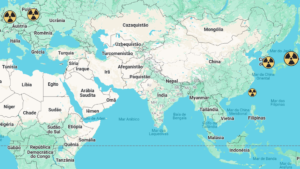
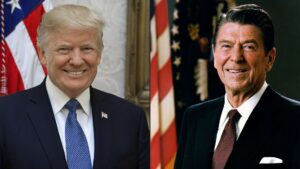
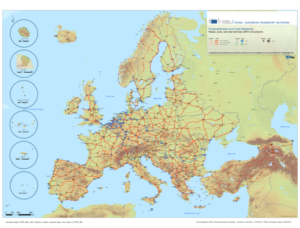
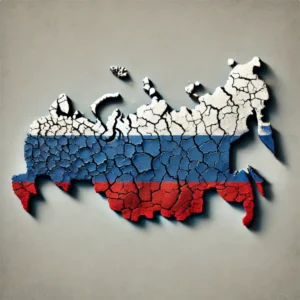
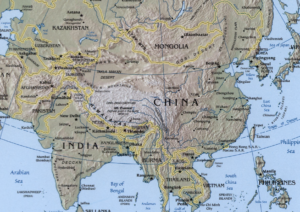
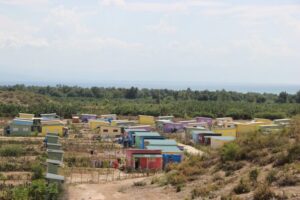

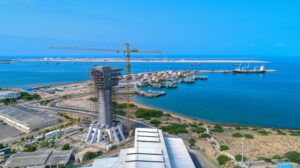



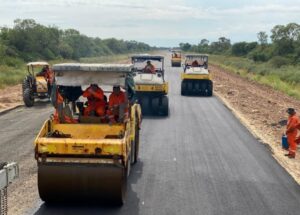
Be First to Comment